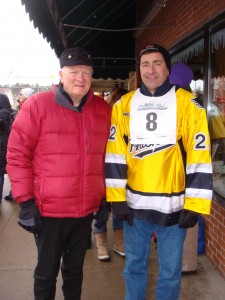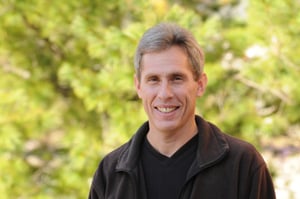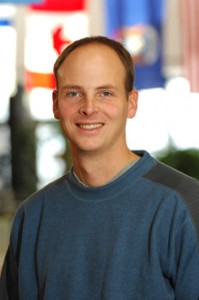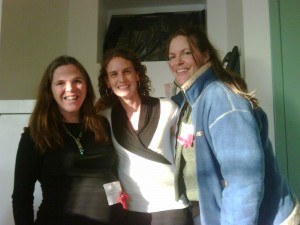
Ken Maki was spotted in his hometown of Hayward, Wisconsin recently. Hayward is the home of the American Birkenbeiner. Ken was volunteering with the Chamber of Commerce which was hosting visitor events. Ken spotted a group from Michigan Tech in their Hockey Husky jerseys and welcomed them to Hayward.
Ken is pictured here with fellow Michigan Tech graduate Bob Richards (Biology 77) from Houghton, Michigan.
Ken skied the full American Birkenbeiner (54 kilometers … that’s over 33.5 miles) the next day in 5 hours and 40 minutes. Congratulations, Ken!




